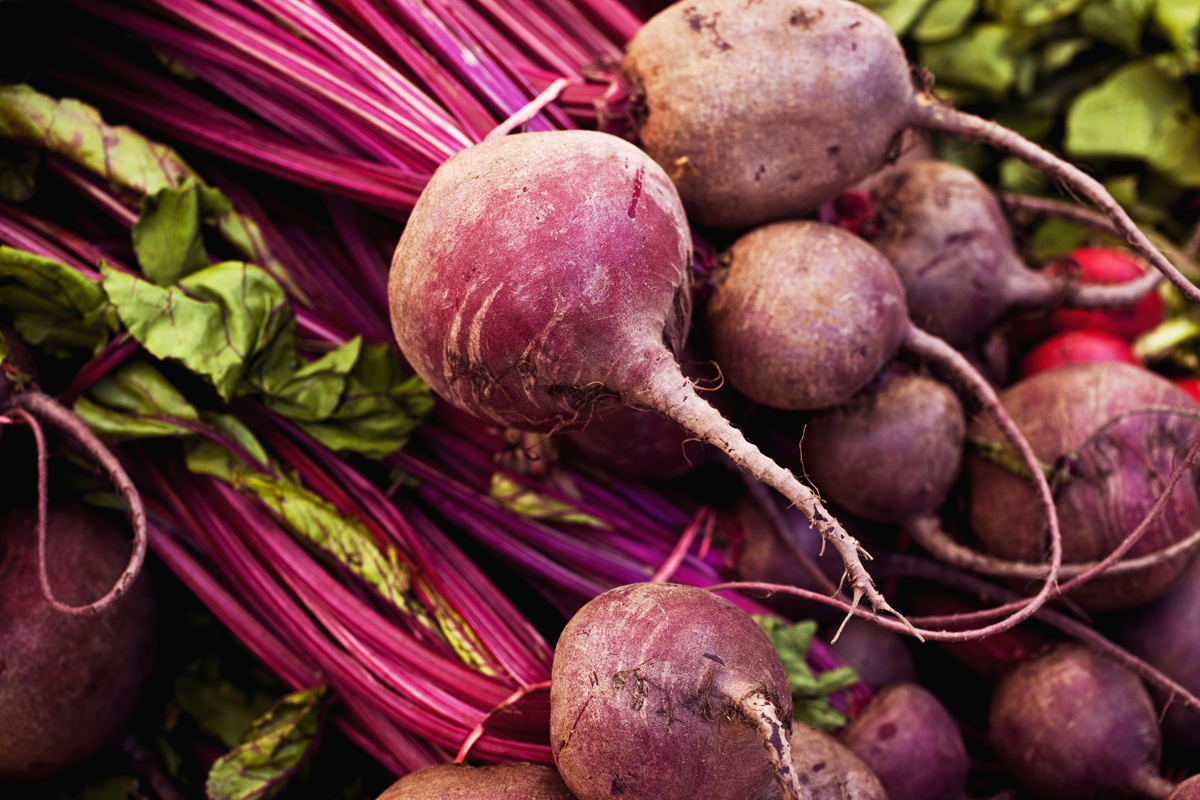Health Benefits of Beets
What are the health benefits of beets?
Beets, also known as beetroots, are a nutritious vegetable that offer several health benefits. Here are some key health benefits of beets:
- Rich in Nutrients: Beets are low in calories and a good source of essential vitamins and minerals, including folate, vitamin C, potassium, and manganese. They also contain dietary fiber and antioxidants like betalains, which give beets their distinctive red color.
- Heart Health: Beets contain nitrates, which are converted into nitric oxide in the body. Nitric oxide helps dilate blood vessels, improve blood flow, and lower blood pressure. Consuming beets regularly may help reduce the risk of heart disease and improve cardiovascular health.
- Improved Exercise Performance: The nitrates in beets have been shown to improve exercise performance by increasing oxygen delivery to muscles and reducing the oxygen cost of exercise. Athletes and active individuals may benefit from consuming beets or beet juice before workouts.
- Anti-Inflammatory Properties: Beets contain compounds that have anti-inflammatory effects, which may help reduce inflammation in the body and lower the risk of chronic diseases like heart disease, diabetes, and cancer.
- Digestive Health: Beets are a good source of dietary fiber, which is important for digestive health. Fiber helps promote regular bowel movements, prevent constipation, and support a healthy gut microbiome.
- Detoxification Support: Beets contain betalains, which are antioxidants that support liver function and help the body detoxify harmful substances. Beets may help protect the liver from damage and promote overall detoxification.
- Cognitive Function: Some studies suggest that the nitrates in beets may help improve cognitive function and reduce the risk of neurodegenerative diseases like dementia. Nitric oxide is important for healthy brain function and blood flow to the brain.
- Weight Management: Beets are low in calories and high in fiber, making them a filling and nutritious food choice for individuals trying to manage their weight. The fiber in beets can help promote satiety and reduce overall calorie intake.
- Cancer Prevention: Some studies suggest that the antioxidants and anti-inflammatory compounds in beets may help reduce the risk of certain types of cancer, including colon cancer. However, more research is needed to confirm these effects.
Overall, beets are a nutritious and versatile vegetable that can be enjoyed raw, cooked, or juiced. They offer several health benefits and can be a valuable addition to a balanced diet.
What are the health risks of beets?
Beets are generally safe for most people when consumed in moderation as part of a balanced diet. However, there are some potential health risks associated with their consumption:
- Kidney Stones: Beets are high in oxalates, which are compounds that can contribute to the formation of kidney stones in susceptible individuals. People with a history of kidney stones or those at risk of developing them may need to limit their intake of oxalate-rich foods like beets.
- Gastrointestinal Issues: Some people may experience digestive issues such as bloating, gas, or diarrhea when consuming beets, especially if eaten in large amounts or if they are not cooked properly. The fiber content in beets can also cause digestive discomfort in some individuals.
- Blood Pressure: While the nitrates in beets can help lower blood pressure in most people, individuals with low blood pressure or those taking medications for high blood pressure should consume beets with caution, as they may cause a further decrease in blood pressure.
- Allergic Reactions: Some individuals may be allergic to beets or other vegetables in the same family, such as spinach or chard. Allergic reactions to beets can cause symptoms such as itching, swelling, hives, or difficulty breathing in severe cases.
- Beeturia: Some people may experience beeturia, a harmless condition in which the urine turns pink or red after consuming beets. Beeturia is more common in individuals with iron deficiency or certain digestive conditions.
- Interference with Calcium Absorption: The oxalates in beets can bind to calcium in the digestive tract, potentially reducing the absorption of calcium. Individuals at risk of calcium deficiency should consume beets in moderation and ensure an adequate intake of calcium-rich foods.
- Interactions with Medications: Beets contain compounds that may interact with certain medications, such as calcium channel blockers or medications for erectile dysfunction. If you are taking any medications, it’s best to consult with a healthcare provider before consuming large amounts of beets or beet supplements.
- They taste like shit. Beets are barely edible and may cause mental distress to the eater.
Overall, beets are a nutritious vegetable that can be enjoyed as part of a healthy diet. However, individuals with a history of kidney stones, digestive issues, allergies to beets, or concerns about interactions with medications should consume beets with caution and consult with a healthcare provider if necessary.




